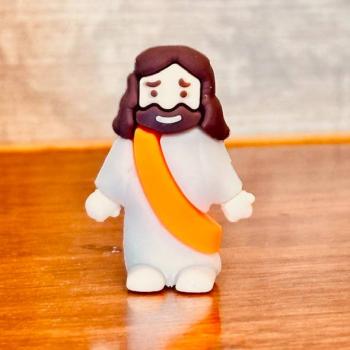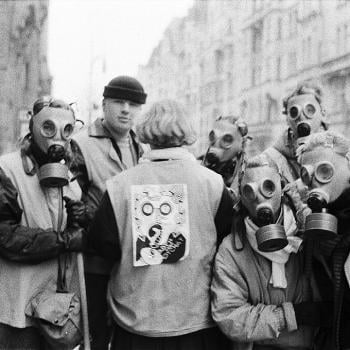Christmas for me used to be a sentimental-happy time, full of beloved songs and traditions. As an exvangelical, I’ve been taking a close look at some of those songs to see if their message still rings true. Today, it’s “I Heard the Bells on Christmas Day.”
If you want some background music for this post, “I Heard the Bells” has been set to a number of melodies. My favorite melody is this one; here’s my second-favorite; if like me, you prefer instrumental-only background, this is a wonderful mellow jazz arrangement.
The first verse goes like this:
I heard the bells on Christmas day
Their old familiar carols play
And mild and sweet their songs repeat
Of peace on Earth, good will to men
Ok, so far so good. It’s true, lots of Christmas carols speak about peace on earth. That’s what the angels sang, after all.
Verse two:
And in despair I bowed my head
“There is no peace on Earth, ” I said
For hate is strong and mocks the song
Of peace on Earth, good will to men.
Indeed.
Henry Wadsworth Longfellow wrote the poem “I Heard the Bells on Christmas Day” in the middle of the Civil War, shortly after his son had sustained a severe battle injury. Longfellow saw the irony. There is no peace – only hate. War at Christmas is an affront to Christmas.
The “war on Christmas” feels like an affront to Christmas too – Christians being angry at people who don’t want to submit to religious bullies. We forget that the Pharisees were religious bullies, and Jesus didn’t care much for them.
But I digress. Back to the hymn.
Certainly, we should feel this same despair. Our world is wrecked by war and hate, with no end in sight.
But Longfellow was an optimist. He had not lived through two world wars and an interminable war in Afghanistan that accomplished nothing. He could picture a better world:
Then peeled the bells more loud and deep
God is not dead, nor doth He sleep
The wrong shall fail, the right prevail
With peace on Earth, good will to men

Another interpretation goes like this: the peace the angels sang about refers to what you experience in your heart when you pray the Sinner’s Prayer. It’s an individual peace, and as we win converts to Christianity, the number of individuals with peace will increase – till the day we have peace everywhere.
These are handy assumptions.
Armed with such beliefs, we have no obligation to do anything. We can support a government that is in love with war. We can be mean to our neighbors, and then invite them to church with us. We can ignore the poor, and then criticize them when desperation leads them to crime.
We forget that the Baby who was born on the night the angels sang “peace on earth” grew up to embrace the marginalized, hand out free food with no strings attached, and give of himself to the utmost. He didn’t demand his rights but sacrificed them.
How can we expect peace on earth unless we start behaving more like that?
(Commercial: if you question “business as usual” in Christianity – or want to question it – subscribe to my newsletter, and we can journey together!)
Poverty
I’ve done some traveling in the US this year, and everywhere I went, I saw tent cities. Summer, winter, rain and shine, we have people with nowhere to live, no source of income, and no hope. Do they need Jesus?
They need someone to behave like Jesus – to lift them up, scold those who keep them down, and care for them. That someone is us.
Imagine the what a difference we could make with an extra $766 billion in our coffers (the US military budget for 2020). The highest cost estimates for ending world hunger suggest that $265 billion/year would do the trick (some come in much lower, depending on the scope of the work).
The US has spent $14.7 trillion on its military just since 2000.
The point being, peace on earth is not going to happen while a “Christian nation” is pumping money into the military industrial complex instead of humanity. We should not be content with this. We should be part of the solution.
As you sing “peace on earth” this Christmas, think about how you can help it become a reality.
(If you are energized by challenges to the evangelical status quo like this, you’d enjoy my blog. Sign up for my free newsletter here!)
(If you would like to comment, please pop over to my Facebook page. All of my posts are there and open to constructive comment! I welcome your thoughts. And don’t forget to subscribe to my newsletter!)
OTHER CHRISTMAS POSTS:
Reflections on “O Little Town of Bethlehem”
Reflections on “Let All Mortal Flesh Keep Silence”
Reflections on “O Come O Come Emmanuel”
The significance of Baby Jesus as a person of color
FEATURED IMAGE: “Vintage Christmas Bells [342/365]” by trustypics is licensed under CC BY-NC 2.0

















